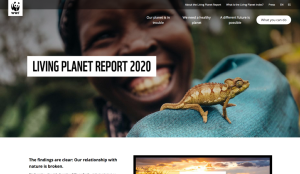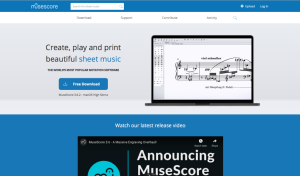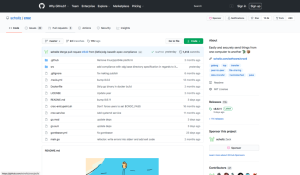General Interest
Back to Top
|
 |
|
Connect OER
|
Educational Technology |
|
As an information sharing platform that connects educators across North America, Connect OER lives up to its name. Readers may want to start by navigating to the Directory tab to view the existing database. Several filters are provided for more fruitful browsing; for example, selections allow users to search by name, location, activity, and other institutional characteristics, and buttons at the top of the page invite users to narrow by Institutions, Programs, Policies, Events, and Resources. Then, interested readers can create a free profile for their institution to highlight their own OER contributions and share best practices in the field. Users should note that most of the information they contribute to the database will be available in the public domain through a CC0 Public Domain Dedication. The FAQ button at the bottom of the page provides guidance on how to request an account, how to maintain and make changes to user profiles, and other troubleshooting advice. Additionally, the Reports tab contains comprehensive yearly snapshots of Connect OER's efforts and the evolution of OER generally. Connect OER is a project of SPARC, a global group dedicated to "making open the default for research and education." [EMB] |
|





|
|
 |
|
Lands of Freedom
|
Social studies |
|
Lands of Freedom shares stories from the Matawai Maroons in Suriname, a community whose ancestors escaped from slavery centuries ago and fought for liberation. Created by the Amazon Conservation Team, an organization that supports Indigenous and local communities on conservation and cultural preservation efforts, the project corrects a long tradition that too often shared the stories of slave owners rather than enslaved people. This failed to truly center the "reality of the condition of millions of men and women who had been thrown into the violence of slavery," because the narrative came "from the perspective of the executioner." The project also contains an oral history component because many of the written sources found in libraries and archives preserve the actions of colonizers, rather than share the voices of Matawai people. The project provides several resources, including an October 2020 presentation recording from Suriname's National Maroons Day, where historians Rolien Sallons (Matawai) and Ramon Awenkina (Aukaner) take viewers on a virtual journal of the storytelling map. Additionally, readers can scroll through the text, interactive maps, and other resources by clicking the menu icon in the top-left corner or using the arrow keys at the top-center of the website. Some of the documents are translated from French, and readers will find embedded links to the original text as well. The project operates in partnership with the United Nations Educational, Scientific, and Cultural Organization (UNESCO), The Slave Route: Resistance, Liberty Heritage, the Nationaal Archief Suriname, and Recovering Voices. [EMB] |
|





|
|
 |
|
How to Make Your Digital Classroom More LGBTQ-Friendly
|
Social studies |
|
It Gets Better began as a social media campaign and transformed into a global nonprofit supporting and empowering LGBTQ+ youth. The organization's digital roots have come full circle in recognition of the increasing presence of digital classrooms. To ensure that online learning environments remain "safe and inclusive places for LGBTQ+ students," It Gets Better released this action list, "How to Make Your Digital Classroom More LGBTQ-Friendly." The article provides great guidelines for educators, covering topics like pronoun etiquette, building inclusive curriculum, and visible allyship. Additionally, the resource links out to several helpful tools found across the organization's website. For example, readers can check out the glossary of LGBTQ-inclusive terminology, browse a plethora of educational materials, select free-to-download Zoom backgrounds designed by LGBTQ artists, and reference a comprehensive resource list to support students. At the end of the list, readers will find links to all of It Gets Better's social media channels, which offer additional content that may be of interest to educators and students. [EMB] |
|





|
|
 |
|
Talk Art
|
Arts |
|
What happens when an actor and a gallerist join forces? Find out by tuning into Talk Art, a splendid podcast hosted by actor Russell Tovey and Robert Diament, director of the Carl Freedman Gallery. The podcast features interviews with artists, curators, and gallerists, plus occasional actors, musicians, and journalists. An example of a recent installment is the LGBTQ+ History Month 2021 episode, which features selected highlights from the National Portrait Gallery's collection in London, including works by David Hockney, Maggi Hambling, Isaac Julien, and Howard Hodgkin. Listeners reminiscing about winter holidays can check out last year's Christmas special with actor Stephen Fry, recorded remotely during lockdown from Fry's home in Norfolk. Head over to the show's Instagram, @TalkArt, for images of artworks discussed in each episode, or get the book, Talk Art: Everything you wanted to know about contemporary art but were afraid to ask, out in paperback in May 2021. [DS] |
|





|
|
 |
|
Accessibility Developer Guide
|
Science |
|
Based on the World Wide Web Consortium's Web Content Accessibility Guidelines, this toolkit ensures developers are creating accessible online content. The left-hand panel allows readers to quickly navigate through five sections, or users can browse across content using the search bar in the top-right corner. Of course, the Introduction section is a great place to begin. Here, readers will learn how to use the guide and find background information on the guide's creators, Access for all (a Swiss Foundation) and the Accessibility Alliance (a growing group of contributors and organizations who collaborated on the effort). Then, readers will want to explore the remaining sections: Setup (covering software and tools for accessibility), Knowledge (containing useful tips on visual elements, semantics, and coding), and Examples (templates and tests that users can implement). Finally, the Contribute section welcomes users to share their own knowledge and skills to improve the guide. Readers will also find social media channels linked here. Follow along on Twitter (@A11yDevGuide) and Facebook (@access4all), or stay tuned for upcoming "hackdays." [EMB] |
|





|
|



















